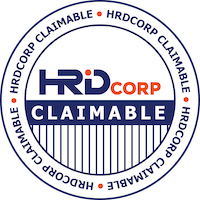Apache Pulsar
Master Apache Pulsar from setup to advanced implementation through our detailed course. Learn about its architecture, stream processing capabilities, SQL integration, security features, and much more. Enroll now to harness the full potential of this powerful distributed messaging system.
- Available in:
- Malaysia

Corporate Pricing
Pax:
Training Provider Pricing
Pax:
Features
Subsidies

What you'll learn
- Understand the fundamentals of messaging systems and Apache Pulsar.
- Explore subscription models and message delivery semantics in Pulsar.
- Monitor and optimize the performance of Pulsar systems.
- Integrate SQL queries with Pulsar streams for real-time analytics.
- Configure and manage Apache Pulsar for both standalone and clustered environments.
- Implement robust security measures including authentication and encryption.
- Learn how to set up Apache Pulsar using Docker and binary methods.
- Develop stream processing applications using Pulsar Functions.
Why should you attend?
This course offers a comprehensive exploration into Apache Pulsar, starting with the basics of messaging systems and moving through to advanced configurations and integrations. Participants will first gain foundational knowledge about what messaging systems are and why they are crucial for modern data handling and real-time applications. They will then delve into specifics of Apache Pulsar, understanding its unique architecture which includes components like Brokers, Bookies, ZooKeeper, and Clients. As the course progresses, learners will explore various subscription models in Pulsar such as Exclusive, Shared, and Failover, and understand different message delivery semantics. Setting up Apache Pulsar using Docker and binary methods for both standalone and clustered deployments forms a practical part of the learning. The curriculum also covers configuration management in detail, emphasizing broker settings, security configurations, and best practices to ensure optimal operation. Advanced topics include stream processing with Pulsar Functions, SQL support for real-time analytics, geo-replication, disaster recovery strategies, and monitoring system performance. Security features of Pulsar such as authentication, authorization, TLS, encryption are thoroughly discussed to equip participants with the knowledge to manage secure messaging environments. The course concludes with deep dives into Pulsar's integration capabilities with other systems like Apache Kafka and building robust data pipelines.
Course Syllabus
Day 1 - Pulsar Fundamentals and Architecture
Short Break
15 minsShort Break
15 minsRecap and Q&A
15 minsLunch
1 hourShort Break
15 minsShort Break
15 minsShort Break
15 minsRecap and Q&A
15 minsEnd of Day 1
Day 2 - Setup and Basic Operations
Short Break
15 minsShort Break
15 minsRecap and Q&A
15 minsLunch
1 hourShort Break
15 minsShort Break
15 minsShort Break
15 minsRecap and Q&A
15 minsEnd of Day 2
Day 3 - Advanced Features and Processing
Short Break
15 minsShort Break
15 minsRecap and Q&A
15 minsLunch
1 hourShort Break
15 minsShort Break
15 minsShort Break
15 minsRecap and Q&A
15 minsEnd of Day 3
Day 4 - Production and Integration
Short Break
15 minsShort Break
15 minsRecap and Q&A
15 minsLunch
1 hourShort Break
15 minsShort Break
15 minsShort Break
15 minsRecap and Q&A
15 minsEnd of Day 4
Ratings and Reviews
Instructor
Mohammad Mehdi Lotfinejad is an accomplished Chief Data Officer and certified HRDF trainer with over 15 years of experience in computer science instruction and professional data science/engineering training. He combines extensive academic credentials with deep industry expertise, holding a PhD in Computer Science from Universiti Malaya and Harvard Business School certification in Business Analytics. His comprehensive technical background spans Apache Spark, MySQL, PostgreSQL, MongoDB, Snowflake, Redshift, Apache Airflow, API development, microservices, and Amazon Web Services. Currently serving as Chief Data and Knowledge Officer at Magna.ai, a Florida-based lawtech company, Lotfinejad leads the development of AI-driven legal case analysis systems, architecting graph databases, data warehouses, and workflow engines while ensuring compliance with legal standards. His concurrent role as Senior Data Engineer at AXIATA Digital Advertising (ADA) in Malaysia demonstrates his ability to manage complex, multi-regional data operations across Southeast Asian markets, designing automated pipelines using AWS RedShift, Snowflake, and Google BigQuery. His training expertise was honed during his tenure as Lead Senior Data Scientist Professional Trainer at The Center of Applied Data Science, where he designed and delivered comprehensive training programs for major corporations including CIMB, PETRONAS, SHELL, and TNB. He successfully led teams of data scientists and engineers in developing cutting-edge curriculum and migrating legacy systems to modern data management solutions. His academic foundation includes faculty positions at multiple universities where he taught computer architecture, programming languages, software engineering, and data structures while publishing numerous high-impact research papers and books. Lotfinejad's unique combination of technical leadership, educational expertise, and industry experience makes him exceptionally qualified to deliver sophisticated software training programs. His proven track record of leading cross-functional teams, developing enterprise-level solutions, and translating complex technical concepts into accessible learning materials positions him as an ideal trainer for organizations seeking to advance their technical capabilities in data science, engineering, and modern software development practices.'
Minimum Qualification
Target Audience
Methodologies
Instructor Reviews
Mehdi and I worked on several projects with company such as Petronas , Shell and CIMB Regional ETC. I must say Mehdi's training was highly appreciated by our clients as he was able to exhibit in full display his vast knowledge as a Data professional. I would highly recommend him to anyone looking for a top tier training expert.
Not only knowledgeable but also having hands dirty on what he knows Friendly and building networks quickly.
I had the pleasure of working with Mehdi together on some high-level initiatives such as the Petronas data scientist program and Shell's project to become a data-driven organization. During these projects, Mehdi received numerous accolades for his ability to share his knowledge and mentor up-and-coming data scientists. Based on our shared experiences, I have no hesitation in recommending Mehdi for any project or position he may be considered for.
FAQs
- Public pricing: applies for individuals signing up from different companies.
- Corporate pricing: applies if a company wants to have an intake for its employees only.
- Training provider pricing: applies only for other training providers looking to hire our trainers and use our content. Our content has a licensing fee.
Courses you may like
Why should you attend?
This course offers a comprehensive exploration into Apache Pulsar, starting with the basics of messaging systems and moving through to advanced configurations and integrations. Participants will first gain foundational knowledge about what messaging systems are and why they are crucial for modern data handling and real-time applications. They will then delve into specifics of Apache Pulsar, understanding its unique architecture which includes components like Brokers, Bookies, ZooKeeper, and Clients. As the course progresses, learners will explore various subscription models in Pulsar such as Exclusive, Shared, and Failover, and understand different message delivery semantics. Setting up Apache Pulsar using Docker and binary methods for both standalone and clustered deployments forms a practical part of the learning. The curriculum also covers configuration management in detail, emphasizing broker settings, security configurations, and best practices to ensure optimal operation. Advanced topics include stream processing with Pulsar Functions, SQL support for real-time analytics, geo-replication, disaster recovery strategies, and monitoring system performance. Security features of Pulsar such as authentication, authorization, TLS, encryption are thoroughly discussed to equip participants with the knowledge to manage secure messaging environments. The course concludes with deep dives into Pulsar's integration capabilities with other systems like Apache Kafka and building robust data pipelines.
What you'll learn
- Understand the fundamentals of messaging systems and Apache Pulsar.
- Explore subscription models and message delivery semantics in Pulsar.
- Monitor and optimize the performance of Pulsar systems.
- Integrate SQL queries with Pulsar streams for real-time analytics.
- Configure and manage Apache Pulsar for both standalone and clustered environments.
- Implement robust security measures including authentication and encryption.
- Learn how to set up Apache Pulsar using Docker and binary methods.
- Develop stream processing applications using Pulsar Functions.
Course Syllabus
Day 1 - Pulsar Fundamentals and Architecture
Short Break
15 minsShort Break
15 minsRecap and Q&A
15 minsLunch
1 hourShort Break
15 minsShort Break
15 minsShort Break
15 minsRecap and Q&A
15 minsEnd of Day 1
Day 2 - Setup and Basic Operations
Short Break
15 minsShort Break
15 minsRecap and Q&A
15 minsLunch
1 hourShort Break
15 minsShort Break
15 minsShort Break
15 minsRecap and Q&A
15 minsEnd of Day 2
Day 3 - Advanced Features and Processing
Short Break
15 minsShort Break
15 minsRecap and Q&A
15 minsLunch
1 hourShort Break
15 minsShort Break
15 minsShort Break
15 minsRecap and Q&A
15 minsEnd of Day 3
Day 4 - Production and Integration
Short Break
15 minsShort Break
15 minsRecap and Q&A
15 minsLunch
1 hourShort Break
15 minsShort Break
15 minsShort Break
15 minsRecap and Q&A
15 minsEnd of Day 4
Instructor Reviews
Mehdi and I worked on several projects with company such as Petronas , Shell and CIMB Regional ETC. I must say Mehdi's training was highly appreciated by our clients as he was able to exhibit in full display his vast knowledge as a Data professional. I would highly recommend him to anyone looking for a top tier training expert.
Not only knowledgeable but also having hands dirty on what he knows Friendly and building networks quickly.
I had the pleasure of working with Mehdi together on some high-level initiatives such as the Petronas data scientist program and Shell's project to become a data-driven organization. During these projects, Mehdi received numerous accolades for his ability to share his knowledge and mentor up-and-coming data scientists. Based on our shared experiences, I have no hesitation in recommending Mehdi for any project or position he may be considered for.
Corporate Pricing
Pax:
Training Provider Pricing
Pax:
Features
Subsidies

Ratings and Reviews
Instructor
Mohammad Mehdi Lotfinejad is an accomplished Chief Data Officer and certified HRDF trainer with over 15 years of experience in computer science instruction and professional data science/engineering training. He combines extensive academic credentials with deep industry expertise, holding a PhD in Computer Science from Universiti Malaya and Harvard Business School certification in Business Analytics. His comprehensive technical background spans Apache Spark, MySQL, PostgreSQL, MongoDB, Snowflake, Redshift, Apache Airflow, API development, microservices, and Amazon Web Services. Currently serving as Chief Data and Knowledge Officer at Magna.ai, a Florida-based lawtech company, Lotfinejad leads the development of AI-driven legal case analysis systems, architecting graph databases, data warehouses, and workflow engines while ensuring compliance with legal standards. His concurrent role as Senior Data Engineer at AXIATA Digital Advertising (ADA) in Malaysia demonstrates his ability to manage complex, multi-regional data operations across Southeast Asian markets, designing automated pipelines using AWS RedShift, Snowflake, and Google BigQuery. His training expertise was honed during his tenure as Lead Senior Data Scientist Professional Trainer at The Center of Applied Data Science, where he designed and delivered comprehensive training programs for major corporations including CIMB, PETRONAS, SHELL, and TNB. He successfully led teams of data scientists and engineers in developing cutting-edge curriculum and migrating legacy systems to modern data management solutions. His academic foundation includes faculty positions at multiple universities where he taught computer architecture, programming languages, software engineering, and data structures while publishing numerous high-impact research papers and books. Lotfinejad's unique combination of technical leadership, educational expertise, and industry experience makes him exceptionally qualified to deliver sophisticated software training programs. His proven track record of leading cross-functional teams, developing enterprise-level solutions, and translating complex technical concepts into accessible learning materials positions him as an ideal trainer for organizations seeking to advance their technical capabilities in data science, engineering, and modern software development practices.'
Minimum Qualification
Target Audience
Methodologies
FAQs
- Public pricing: applies for individuals signing up from different companies.
- Corporate pricing: applies if a company wants to have an intake for its employees only.
- Training provider pricing: applies only for other training providers looking to hire our trainers and use our content. Our content has a licensing fee.
Courses you may like
Our Offers

Become a Trainer
Teach what you love. Abundent Academy gives you the tools you need to run your own trainings! We provide you with the platform, the students, the materials, and the support you need to succeed!
- Higher trainer payouts
- Ready-made course materials
- Student management system
- AI digital marketing assistant

Academy for Business
Get unlimited access to all of Abundent Academy's carefully curated courses for your team, all organized according to job category and role! Perfect for companies looking to upskill their workforce and stay ahead in the tech industry.
- Carefully curated courses
- Role-based learning paths
- Team progress tracking
- Gap Identification and Analysis
Top companies choose Academy for Business







